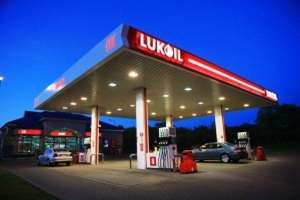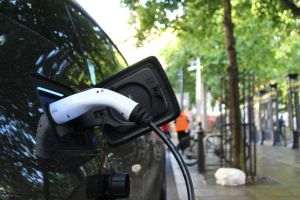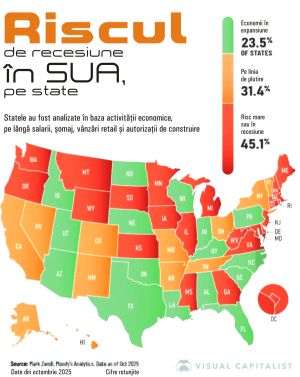After months of speculations in the Dutch press, the financial group SNS Reaal NV has been nationalized. The group comprises SNS Bank, ranked fourth in the chart of the financial institutions considered of systemic importance in Holland.
The bank's equity fell almost to zero under the burden of the losses generated by its loan and real estate investments portfolios, and the negotiations with private investors have yielded no results.
News has appeared in the Dutch media concerning the interest of the top three banks in the Dutch banking system - ING Groep NV, ABN Amro and Rabobank NV - for the acquisition of parts of SNS. However, the European authorities have prohibited ING and ABN to participate in the rescue of SNS, because they have benefited from government support, according to Associated Press.
Bloomberg writes that this will cause the bank's shareholders to lose all their money, as well as the holders of the subordinated bonds issued by the bank. The owners of the other types of bonds issued by SNS Bank will not suffer following the nationalization.
What are the causes of discrimination? Perhaps a recent warning issued by the ratings firm Fitch. In an interview recently given to the Dutch newspaper Financieele Dagblad, Bridget Gandy, an executive at Fitch, said that "if an important country in Europe forces losses upon the bondholders, this will fundamentally change the way we look at European banks".
The main estimates concerning the losses pertaining to the portfolio of real estate assets of the SNS bank amounts to 3.2 billion Euros, and the government has announced that the recapitalization will reach 3.7 billion Euros and will lead to an increase in the budget deficit for the year 2013. The estimates of December 2012 predicted a budget deficit of 3.3% of the GDP for the year 2013.
Aside from the direct recapitalization of 2.2 billion Euros, the Dutch government will also lend 1.1 billion Euros to SNS, as well as put up 5 billion Euros in collateral, according to Bloomberg.
In 2008, SNS received a government aid of 750 million Euros, which it could not repay, which now the Dutch government has written down as a loss.
Associated Press writes that "the Ministry of Finance has announced the nationalization of the SNS Reaal NV group in order to prevent a disorderly bankruptcy", as the real estate lending division is responsible for the collapse of the bank, amid the drop of the prices on the real estate market and the increase in the volume of non-performing loans.
Trading in SNS stock stopped at 0.84 Euros, after a decline of over 95% from the peak of 18.6 Euros, in May 2007, (see chart 1).
In the beginning of the financial crisis, SNS Bank had a major reliance on market borrowing, as its loan to deposits ratio was 222%. At the end of Q3 2012, it had fallen to 146%, an extremely high number in the current context of the international markets.
According to the latest audited data, the SNS group had assets of about 132 billion Euros at the end of 2011, up over 30% compared to 2007, and the customers' deposits amounted to 30.3 billion Euros. They fell by about 1.4 billion Euros since the beginning of the year, according to data presented in the joint press conference of the Bank of Holland and of the Ministry of Finance.
At the end of 2011, the equity to assets ratio showed that a devaluation of just 4% of the value of the assets would have caused the bank to go bankrupt.
What was probably considered an unrealistic scenario when sizing the bank's equity became reality. Prices on the Dutch real estate market fell by over 6% in December 2012, over the similar period of 2011, and over 16% from the peak of August 2008 (see chart 2).
According to Eurostat data, acquired by the news website, DutchNews.nl, Holland has seen the third largest price drop since the beginning of the financial estate crisis, after Spain and Ireland.
Heleen Mees, a professor at Wagner Graduate School of Public Service of New York University, writes, on the Financial Times website, that SNS has seen losses of approximately 2.3 billion Euros, following the investments in foreign real estate, mostly in Spain.
What was the business strategy of the Dutch bank? Raising its exposure to Europe to make sure it wouldn't miss any real estate bubble?
In the document for the presentation of the earnings for Q3 2012, SNS Bank writes that severe pressure remains on the value of commercial real estate properties, amid a drop in the number of transactions and low appetite for the refinancing of old loans, following the new capital requirements of the Basel III agreement. Also, the interest of foreign investors has fallen steeply.
Naturally, the extremely hostile economic environment has negative influences on the other banks in the Dutch banking system.
ING reported an increase in non-performing loans in its portfolio, up to 8% in Q3 2012, amid the increases in Holland and in the UK, as the ratio of non-performing loans in Spain remained at 19%. "The risk costs will remain high, due to the tendency of the commercial real estate markets in Europe to deteriorate", the report by ING also writes.
All the major banks in Holland must face the substantial reduction of the quality of their loan portfolio, in the context of a very high reliance on the financing from the international markets. In Q3 2012, the loan to deposits ratio was 122% for ING, 126% for ABN Amro and 143% for Rabobank.
In 2014, these banks will have to contribute one billion Euros to supporting SNS Bank in order to cap the costs borne by the Dutch tax-payers, according to a government decision. The first estimates by ING and ABN Amro show that the two banks will contribute over 350 million Euros, and 250 million Euros respectively, to the creation of this fund.
After the nationalization of SNS Reaal NV, the Dutch banking system is dominated by four banks, of which four belong to the state, as ABN Amro was nationalized in 2009.
If this is the condition of the financial system in one of the few European countries that still has an AAA rating, what other surprises does the Southern flank of the Eurozone have in store for us?
For now, in Italy, scandals are growing, and in Spain, provisions are increasing. The scandal around the Monte dei Paschi bank has caused the Italian authorities to send the prosecutors over to other banks. According to the legal sources quoted by Reuters, also targeted are Banca Nazionale del Lavoro, member of the BNP Paribas banking group, UniCredit, Intesa SanPaolo and Credem.
Santander, the biggest Spanish bank, has increased its provisions to 18.8 billion Euros in 2012, up 6.6 billion YOY, as the authorities have forced banks to book their mortgage losses quicker.
Such news have put a damper on the early repayment of the loans taken out under the LTRO program of the ECB, which were supposed to show how quickly the state of the European financial system is improving.
Has the banking crisis in Europe ended or is it just beginning?
------------
Note: The opinions in the article represent the author's point of view, they do not reflect or imply the opinions of the institution that employs him and they do not represent an investment recommendation.




























































